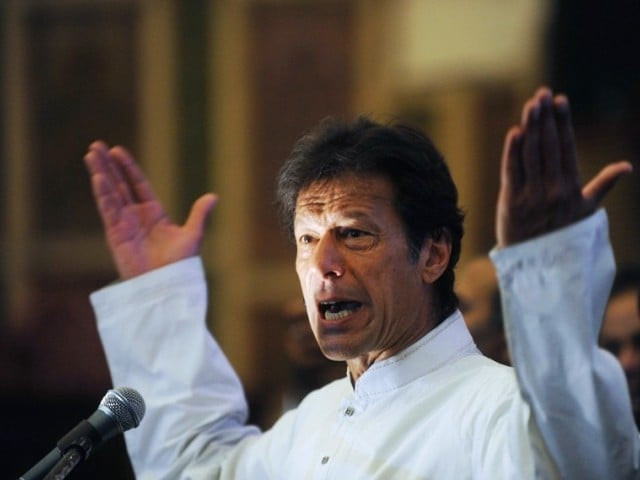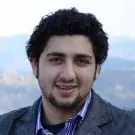In PTI’s dictionary, good guys are those who are ‘honest’ and bad guys are those who do ‘corruption’ as pastime; all the trouble in which Pakistan finds itself today is because ‘bad’ guys rule the country. And PTI is very clear on this – bad guys are either from PML-N or PPP, period.
PTI loves to note that the hereditary chain of command in the power structure of the major political parties’ namely, the PPP and PML-N, is the ultimate factor behind their poor governance. Moreover, PTI avows that it is an alternative political force because it spurns dynastic politics and status quo forces. After reiterating these hackneyed points over and over again, PTI acolytes assume that they have intellectually conquered the political argument. Therefore, for all sane and rational minds there is only one option left, that is, to join the cheerleading squad of Khan sahib.
However, before one might think of doing this, it is pertinent to ask: what’s inherently flawed in dynastic politics and who are the real status quo forces?
Dynastic politics
The problem with dynastic politics is that it rotates around an individual and ‘he’ (gender imbalance noticed) is the main force in the ‘party’. The policy decisions of whom to support and oppose, politically, are based on personal preferences and dislikes of the party chief. Moreover, a dynastic leader is not open to any kind of criticism internally or externally; he aggressively attacks all those who dare to express any kind of disapproval of him. He sacrifices political principles for ‘power’; as a ramification, a dynastic leader can’t remain consistent in his political positions.
Therefore, it is essential to not reduce dynastic-style politics to only hereditary politics because, in essence, what’s problematic in dynastic politics is its particular style and approach towards politics and society.
As far as PTI is concerned, let’s face it, Imran Khan is the heart and soul of the PTI. In fact, Imran is tantamount to PTI. A slight change in his mood translates into a shift in PTI’s policy. Not to mention, he never gets tired of distinguishing himself from the masses and the rest of his party personnel. Narcissism is part and parcel of Imran’s political arguments. This methodology or lack of it, towards politics reveals the ‘dynastic’ mindset of Khan sahib. Furthermore, PTI’s record in keeping political consistency is at par with other major political parties – if not worse.
The PTI chief claims to be an unwavering crusader of ‘peace talks’ with the Tehreek-e-Taliban Pakistan (TTP). He earnestly disapproves any questions raised on his simplistic assumption that peace talks with the TTP are tantamount to sustainable peace in the country. In fact, he blocks any prospects of fruitful discussion on this issue by labelling those who express their difference of opinion with him as ‘dollar-khor’. This is another reflection of Imran’s un-democratic attitude towards politics because, instead of providing a logical rebuttal of the argument, he seeks refuge in personal attacks.
Inconsistency in policies
Even on his most notable policy proposal, he couldn’t keep consistency in his approach. He has exempted a few groups from his ruthless criticism, most notably, Tahirul Qadri and our security establishments; both seem to disagree with Imran on this issue, at least on the surface, yet Imran remains silent with them.
Qadri is very truculent in his opposition to peace talks with the TTP. It is of paramount importance to notice that the luminary advocacy of annihilation of the TTP, via military operation, by Qadri has gone unnoticed from Imran. He does not get unduly enraged by Qadri’s proposal of military operation against the TTP, as he does when some liberals make the same demand.
Moreover, security institutions are the most eager among all state institutions to launch an operation against the TTP. They also seem to have strong reservations on the current peace-talks with the TTP but Imran never expresses his bemusement towards them. It is worth asking that, if PTI’s politics is consistent and based on issues, then shouldn’t PTI criticise all those who are trying to oppose the ‘peace-talks’ with the TTP?
The fact is that Imran has become desperately hungry for power; therefore, he is not bothered about consistency in his political positions anymore. He is willing to sacrifice consistency in his party policies as a trade-off for becoming the next prime minister of Pakistan. As a result he is strategically exempting all those from his merciless criticism who can potentially catalyse his journey towards prime minister-ship.
Moreover, we are observing that all those who were politically estranged before are becoming active again. They are sensing it is a good time to get close with Khan sahib because they know he will shake their hand and ignore what he said about them in the past, as long as they make the right appeal to his hunger for power.
Status quo forces
Another major claim of the PTI is that it is an anti-status-quo party. Political opposition to PPP and PML-N is conceived as anti-status-quo by the PTI. In truth, every political party provides challenges and opposition to their counterpart parties because they all contest for supremacy in political power. In fact, PPP and PML-N both contest against each other too. Pakistan Muslim League-Quaid (PML-Q), Jamiat Ulema-e-Islam-Fazl (JUI-F) and other mainstream parties also contest against the PPP and PML-N; does that mean they are all anti-status-quo? Moreover, PPP and PML-N were not in power for many years in Pakistan but the power structure of the state did not change in favour of the people in the absence of these two parties. Therefore, it is essential to not reduce status quo forces to PPP and PML-N.
I find the following remarks by Voltaire very useful in identification of status quo forces:
“To learn who rules over you, simply find out who you are not allowed to criticise”
In Pakistan most folks only apply self-censorship when they are in discussion with the religious-clergy or they are making remarks on the conduct of our security establishments. Both of these forces have a privileged status in our society and they are part and parcel of the status quo in Pakistan. PTI seems comfortable and in alliance with both of these powerful forces. In fact, recent political positioning of the PTI has made it clear that the party’s politics prolongs and protects the interests of the real forces of the status quo in Pakistan. In fact, it would not be a hyperbole to state that in recent times PTI has successfully emerged as a new political face of the status quo in Pakistan.



COMMENTS
Comments are moderated and generally will be posted if they are on-topic and not abusive.
For more information, please see our Comments FAQ